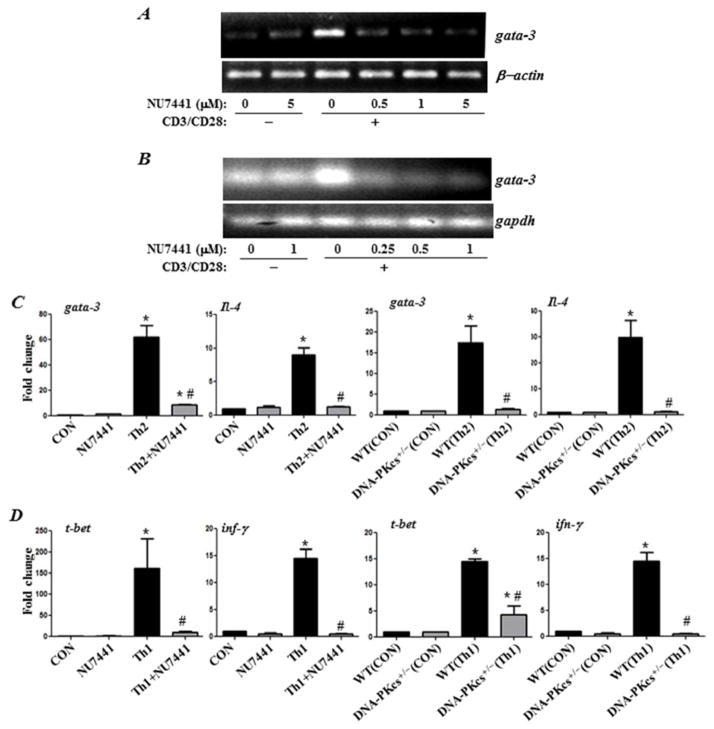Figure 9. DNA-PK inhibition blocks CD3/CD28-induced gata-3 expression in naïve mouse or human CD4+T cells and prevents in vitro differentiation of mouse Th1 and Th2 cells under respective Th1- and Th2-skewing conditions.
CD4+T cells isolated from spleens of WT mice (A) or PBMCs collected from healthy donors (B) were stimulated with antibodies to CD3/CD28 for 24 h in the absence or presence of different concentrations of NU7441. Isolated RNA was reverse-transcribed and the resulting cDNA was subjected to conventional PCR with primer sets specific to human or mouse gata-3. CD4+ T cells isolated from spleens of OVA-sensitized WT or DNA-PKcs+/− were skewed towards a Th1 with IL-12 and anti-IL-4 antibodies or towards a Th2 phenotype with IL-4 and anti-IL-12 antibodies. Subsets of WT CD4+T cells were skewed towards Th1 and Th2 in presence of 1μM NU7441. Isolated RNA was reverse-transcribed and the resulting cDNA was subjected to real time PCR with primer sets specific to mouse gata-3 or Il-4 (C) or with primer sets specific to t-bet or Ifn-γ (D). *, difference from non-stimulated cells; #, difference from Th2 (C) or Th1 (D) skewed cells; p <0.01.

